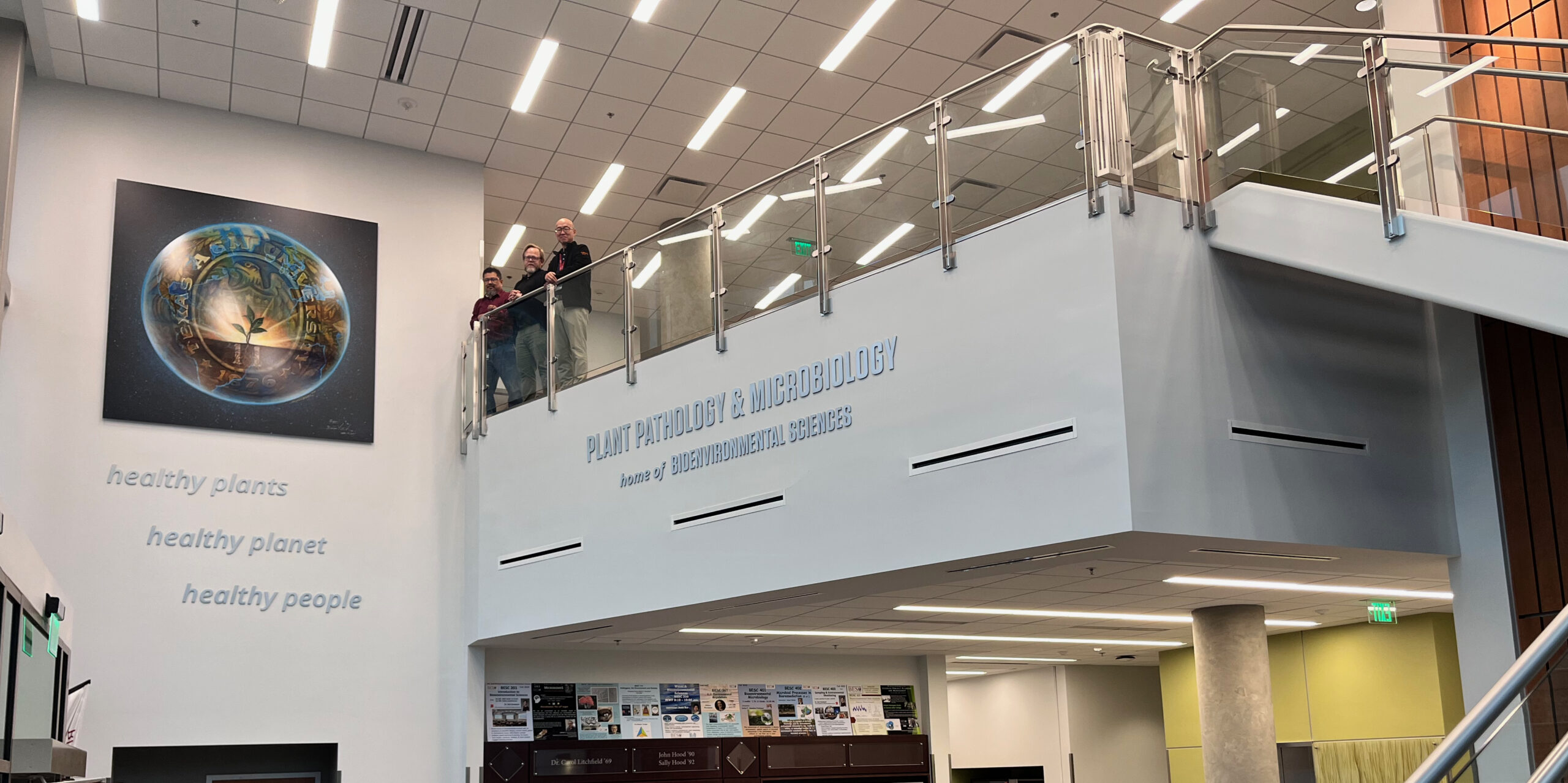
Department of
Plant Pathology & Microbiology
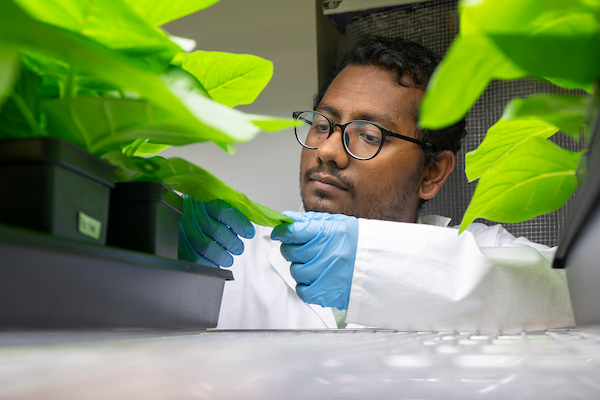
6 Degree Options
A degree in the STEM field of bioenvironmental sciences equips you to play a direct role in developing and implementing solutions to environmental problems. Our graduates often enter careers in industry or government associated with the prevention and remediation of environmental hazards, such as microbial threats, toxic wastes, and other damage to fragile ecosystems.
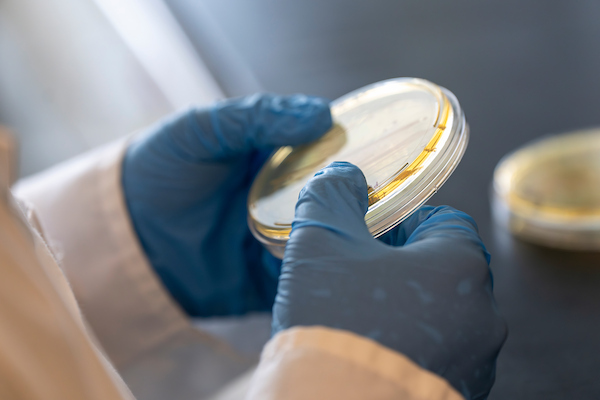
9 Research Areas
Faculty programs focus on a diversity of plant-microbe interactions, from plant innate immunity, biocontrol, host-pathogen interactions (signals, volatiles), mycotoxins, pathogenicity mechanisms, control of programmed cell death, to biofuels and bioinformatics. The department encompasses projects that attack applied problems like plant disease control with both classical and modern approaches.
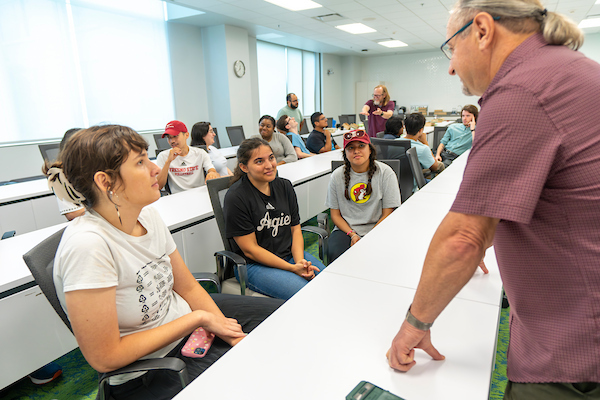
300+ Enrolled Students
Use of hands-on experiences in our classrooms, laboratories, and excellent internship opportunities ensure that you gain experience with the concepts and the technology essential for prevention, assessment, and abatement of environmental problems.
Plant Pathology and Microbiology News
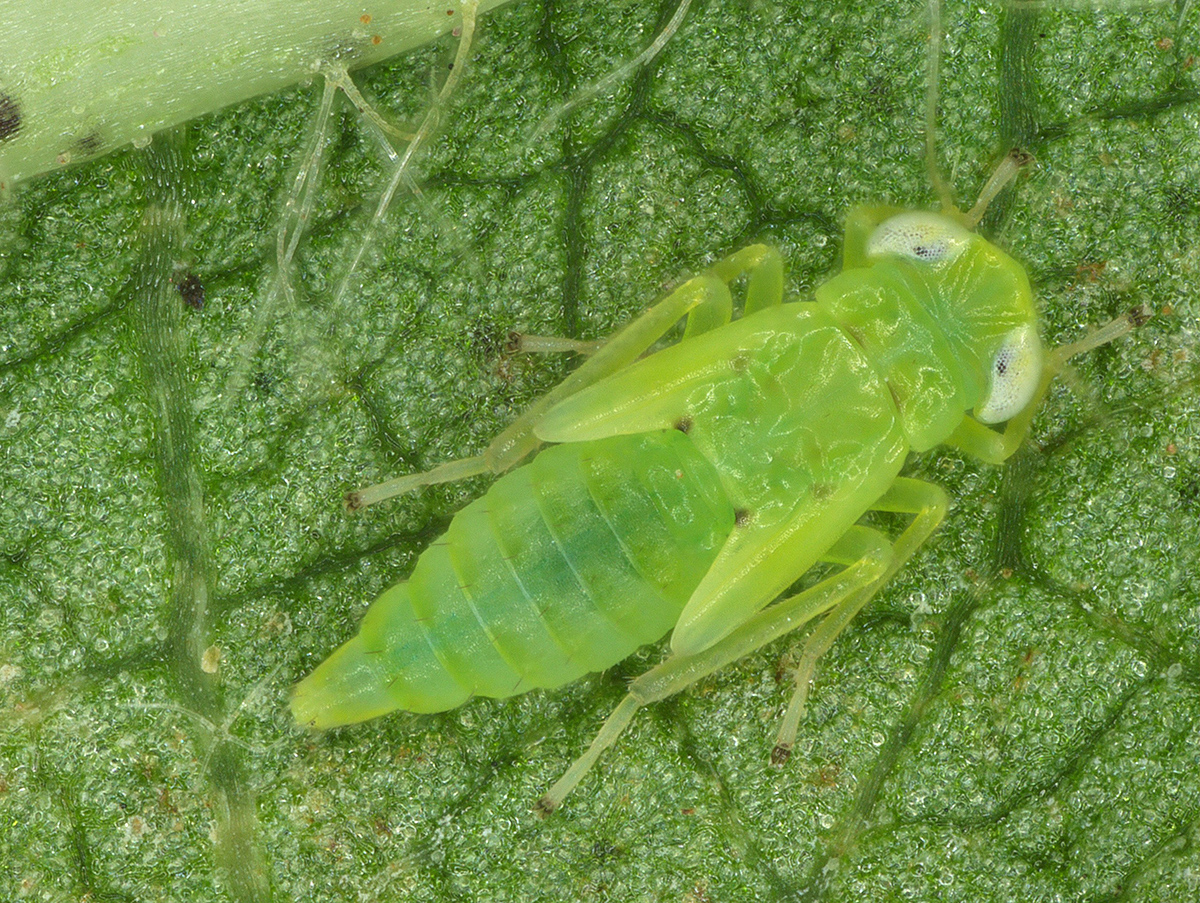
AgriLife Extension shares cotton jassid guidance for green industry
Fact sheet targets invasive insect threat to Texas’ ornamental, nursery industry

Texas A&M College of Agriculture and Life Sciences to host statewide tour for prospective students
Statewide receptions connect communities with opportunities, resources and competitive scholarships
Have questions?
For degrees or admissions questions:
For general questions: